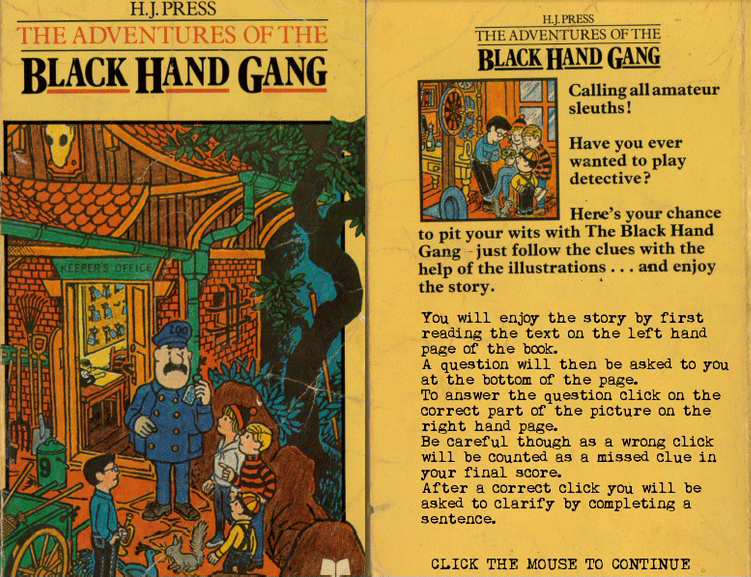
I don’t know if I’m alone here, but sometimes it happens to me that I suddenly recall a TV show or book that I loved as a child, but ended up forgetting for many years as I grew up.
The memory might be triggered by several events, as coming across an abandoned book in a closet, or seeing on the news that the story is being adapted to the big screen, but sometimes, the memory might just pops up in my head as a result of a sequence of associations of arbitrary appearance.
This happened to me recently when I recall a book featuring a group of youngsters who dedicated to solving crime mysteries. In this book you, as a reader, could contribute to the investigation by solving puzzles presented into very detailed illustrations.
As I love creating interactive stories, I thought this could be a good reference for my own gamebooks, but I really couldn’t recall the title of the work, and I didn’t even know if it would be a popular work, so my Google searches were always unsuccessful.
Some time ago, as I was wandering between the shelves at the children’s section of the library (I don’t do this very often), I came across a book called The Adventures of the Black Hand, written and illustrated by a certain Hans Jürgen Press, and if I was a little bit more romantic, I think I would have attributed everything to Destiny.
In any case, I didn’t have to check out the book from the library, because I found on Wikipedia that someone had scanned his copy and published it transformed into a kind of online gamebook here>> http://www.adventuregamestudio.co.uk/site/games/game/1743
It was a pleasant surprise to reread this book and see that the puzzles still entertained me, and also, that the story was as enigmatic as I remembered it.
How to pass the test of the adult reader?
As I see it, the main reasons why I liked this book so much both as a child and as an adult were:
1. The writer appears to be aware of the fact that children is not equal to stupid, even though, indeed, they might have certain particular demands, such as a more dynamic narrative rhythm, and a more concise expression.
2. The overall level of plausibility is acceptable. Children are yet to understood the rules that govern the world, so writers often choose to modify them for their own interest. For a child, the result may even be more entertaining, but for an adult with a trained judgment, the result might seem ridiculous.
In short, I don’t care if a story is intended for children as far as it’s plausible and the author struggled to handle the mechanisms that make it entertaining and surprising in an honest way.
It’s funny how differently we react to different stories we read during our childhood depending on whether they pass this test or not. If the story is still engaging to us despite the passage of time, tears of emotion will roll. However, if the creators showed no effort to preserve the credibility, it will seem rough and even make us feel ashamed.
What do you think? Is there any work that you’ve rediscovered recently and you still like? And the opposite? What do you think that makes the difference?
*You can found the Spanish version of this article here>> Libros que te siguen gustando cuando te haces mayor y cómo redescubrí Las Aventuras de la Mano Negra
Leave a Reply